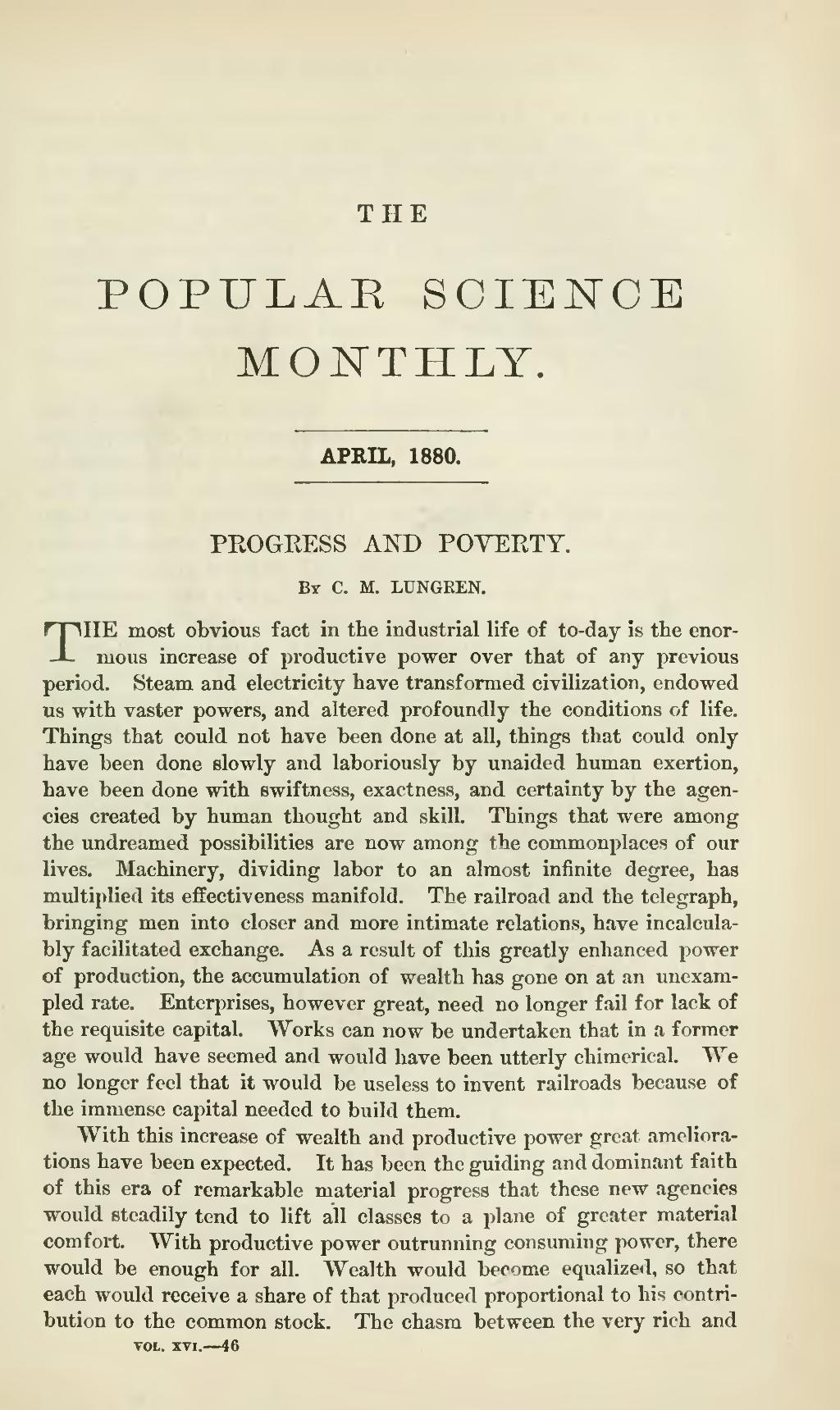THE
POPULAR SCIENCE
MONTHLY.
APRIL, 1880.
| PROGRESS AND POVERTY. |
By C. M. LUNGREN.
THE most obvious fact in the industrial life of to-day is the enormous increase of productive power over that of any previous period. Steam and electricity have transformed civilization, endowed us with vaster powers, and altered profoundly the conditions of life. Things that could not have been done at all, things that could only have been done slowly and laboriously by unaided human exertion, have been done with swiftness, exactness, and certainty by the agencies created by human thought and skill. Things that were among the undreamed possibilities are now among the commonplaces of our lives. Machinery, dividing labor to an almost infinite degree, has multiplied its effectiveness manifold. The railroad and the telegraph, bringing men into closer and more intimate relations, have incalculably facilitated exchange. As a result of this greatly enhanced power of production, the accumulation of wealth has gone on at an unexampled rate. Enterprises, however great, need no longer fail for lack of the requisite capital. Works can now be undertaken that in a former age would have seemed and would have been utterly chimerical. We no longer feel that it would be useless to invent railroads because of the immense capital needed to build them.
With this increase of wealth and productive power great ameliorations have been expected. It has been the guiding and dominant faith of this era of remarkable material progress that these new agencies would steadily tend to lift all classes to a plane of greater material comfort. With productive power outrunning consuming power, there would be enough for all. Wealth would become equalized, so that each would receive a share of that produced proportional to his contribution to the common stock. The chasm between the very rich and
